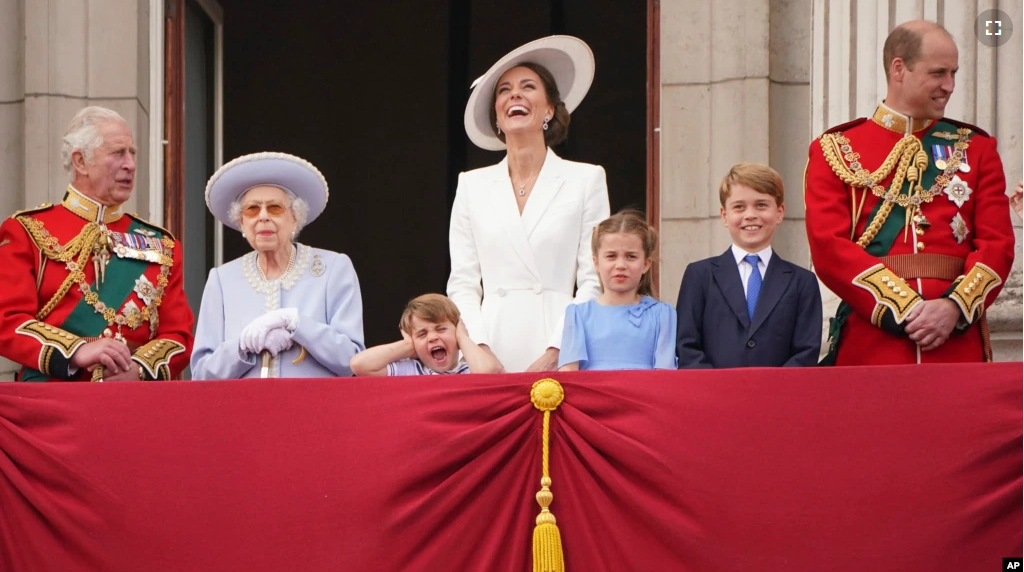Britain is celebrating Queen Elizabeth II’s 70th year on the throne.
The four-day celebration, called Platinum Jubilee, began Thursday with a parade called Trooping the Color. The yearly military parade has marked the monarch’s official birthday since 1760. The queen appeared on the balcony of Buckingham Palace with a small group of family members for a military flyover.
Thousands of people were on the parade route. Many carried British flags, party hats or plastic crowns.
“You’re never going to see this again in your lifetime,” one woman said. “At least not in mine, maybe not in my daughter’s. … 70 years — it is all I have ever known.”
The 96-year-old queen is Britain’s longest-serving monarch. She is the first to reach 70 years on the throne.
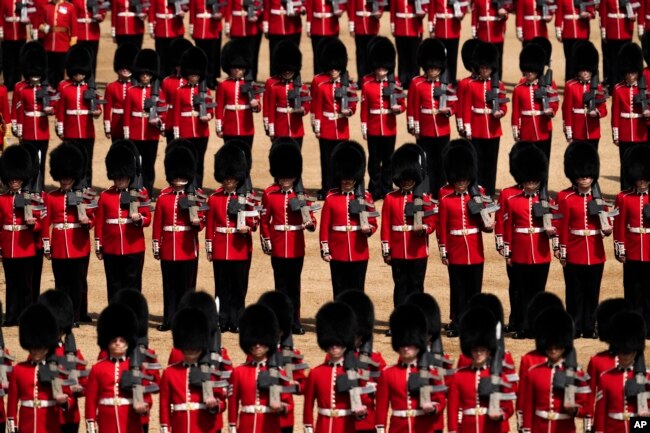
The celebration of Elizabeth’s reign includes a service Friday at St. Paul’s Cathedral in London. There will also be a concert at Buckingham Palace on Saturday and a performance put on by thousands of people from schools and community groups around the country on Sunday.
Thousands of street parties are planned around the country, a tradition that began with the queen’s coronation in 1953.
Several protesters were arrested Thursday after getting past barriers and onto the parade route. The group Animal Rebellion claimed responsibility, saying the protesters were “demanding that royal land is reclaimed.”
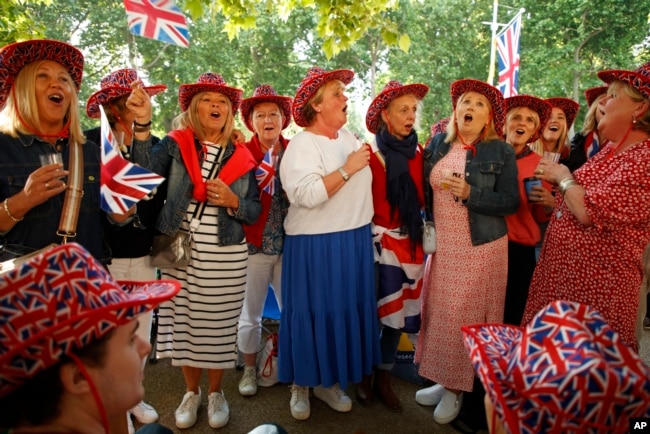
The jubilee is giving many British people a chance to think about the monarchy and the changes that have happened to the country since she took the throne. Fourteen prime ministers have taken office since Elizabeth became queen. Former Prime Minister John Major said her presence has helped provide direction for the country.
“The queen has represented our better selves for over 70 years,” he told the BBC.
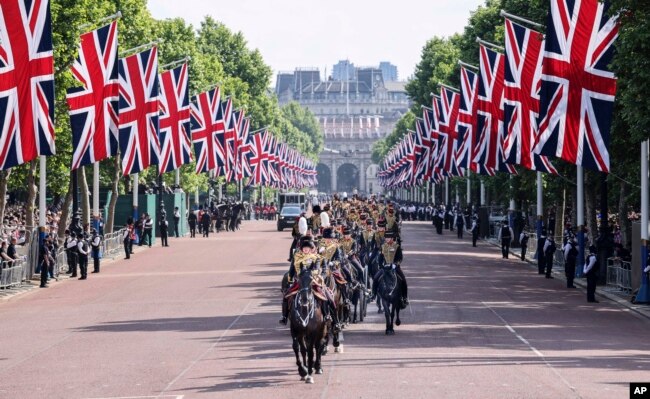
In a written jubilee message, the queen thanked people in Britain and across the Commonwealth involved in organizing the celebrations. The Commonwealth is a group of 54 nations, most of which are former territories of the British Empire. For many, the event is the first chance for a big party since the start of the coronavirus pandemic.
Other world leaders also sent their congratulations. French President Emmanuel Macron said the Queen is one of “very few constants” in the world. And former U.S. President Barack Obama added, “Your life has been a gift, not just to the United Kingdom but to the world.”
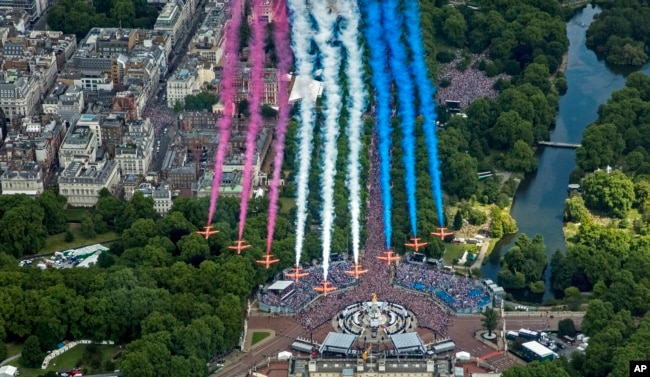
The long weekend’s first event, Trooping the Color, refers to a battle flag, or “color.” The yearly tradition is a reenactment of the way battle flags were once shown to soldiers during fighting.
Each year a different unit in the army’s Household Division has the honor of trooping its color. The 1st Battalion of the Irish Guards has the spotlight during the Platinum Jubilee.
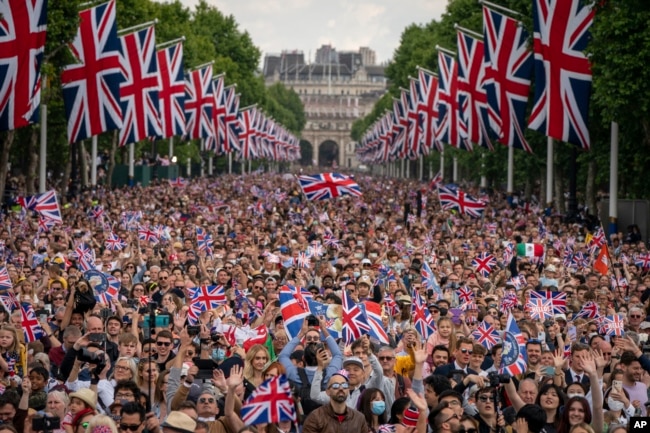
Riding on horseback, Prince Charles, representing the Queen, received the salute from the guards along with his sister, Princess Anne, and his son Prince William.
There is also some attention on those who will not be present.
Prince Andrew, the queen’s second son, settled a lawsuit in which he was accused of sexually abusing an underage woman. He is not expected to attend the celebration.
The Queen’s grandson Prince Harry and his American wife Meghan stepped down from royal duties. They watched the parade but were not present at the palace.
Opinion studies show Elizabeth remains very popular and respected among British people. One study showed eight in 10 people held a positive view of her. Another one found that three-quarters of British people thought she had done a good job as queen.
I’m Dan Novak.
Dan Novak adapted this story for VOA Learning English based on reporting by The Associated Press and Reuters.
___________________________________________________________________
Words in This Story
jubilee — n. a special anniversary
monarch — n. a person such as a king or queen who rules a kingdom or empire
coronation — n. a ceremony in which a crown is placed on the head of a new king or queen
constant — adj. happening all the time or very often over a period of time
reenactment — n. to repeat the actions of
salute — n. an act or ceremony that shows respect for someone
